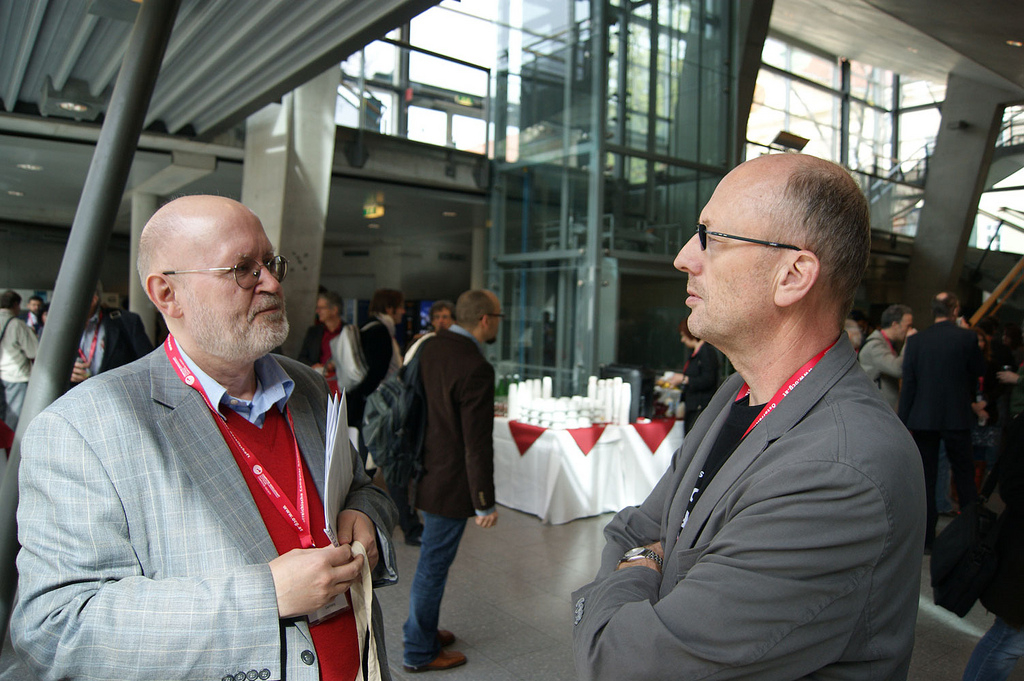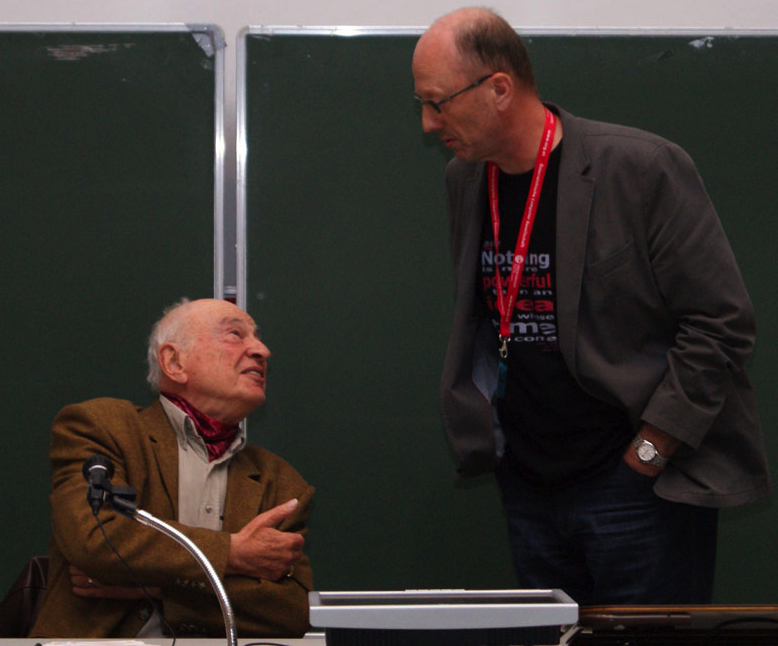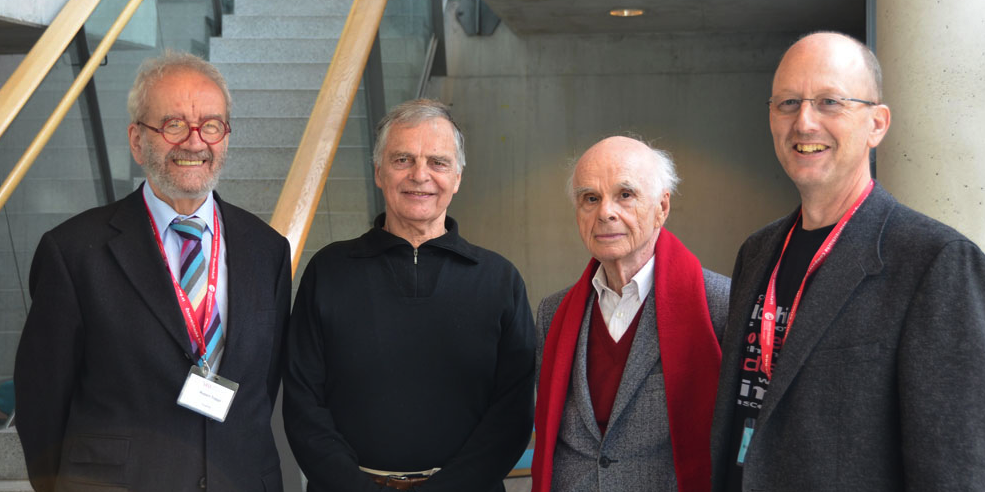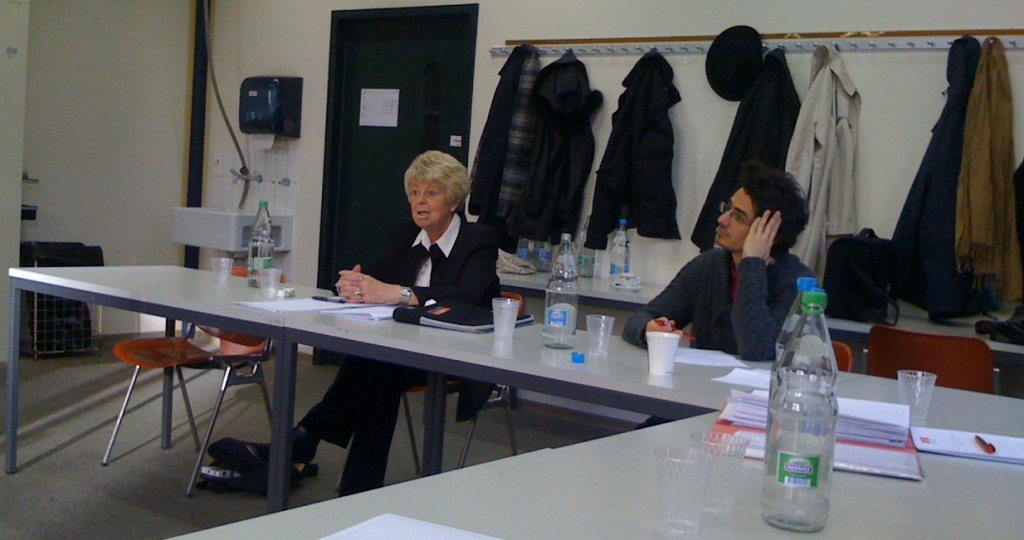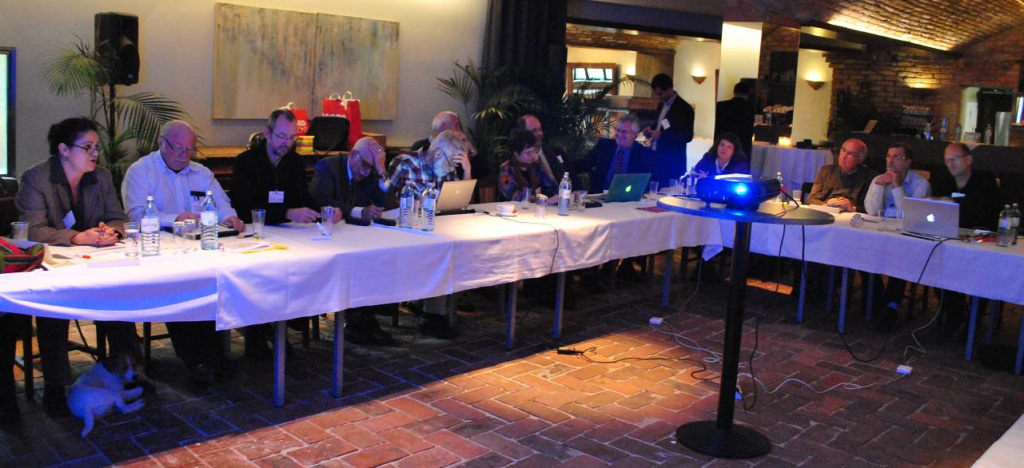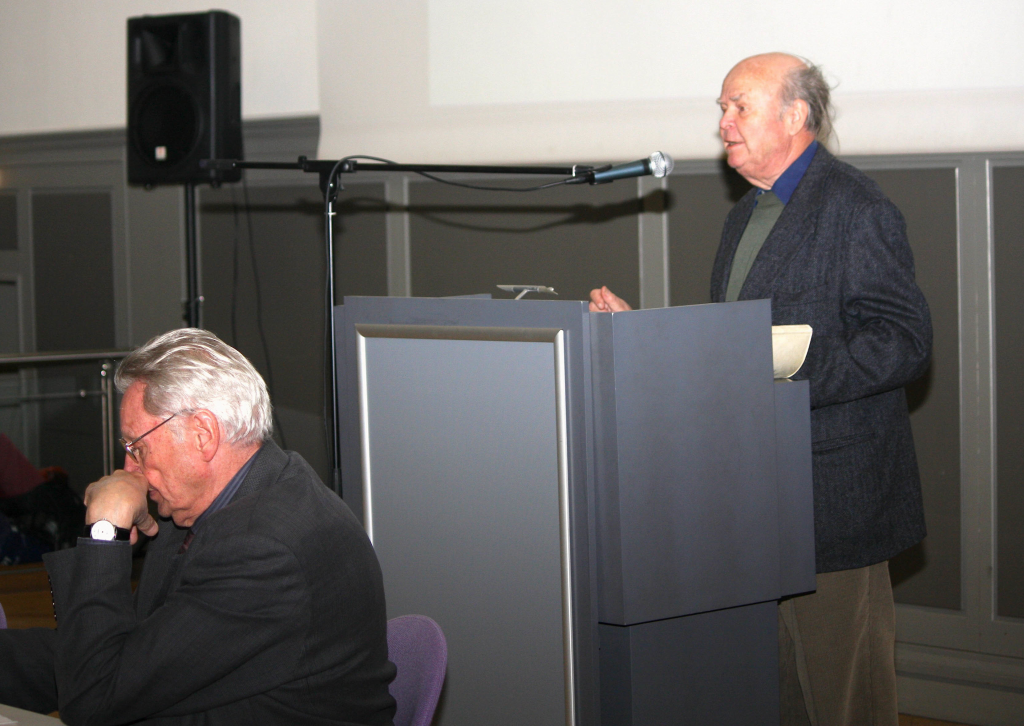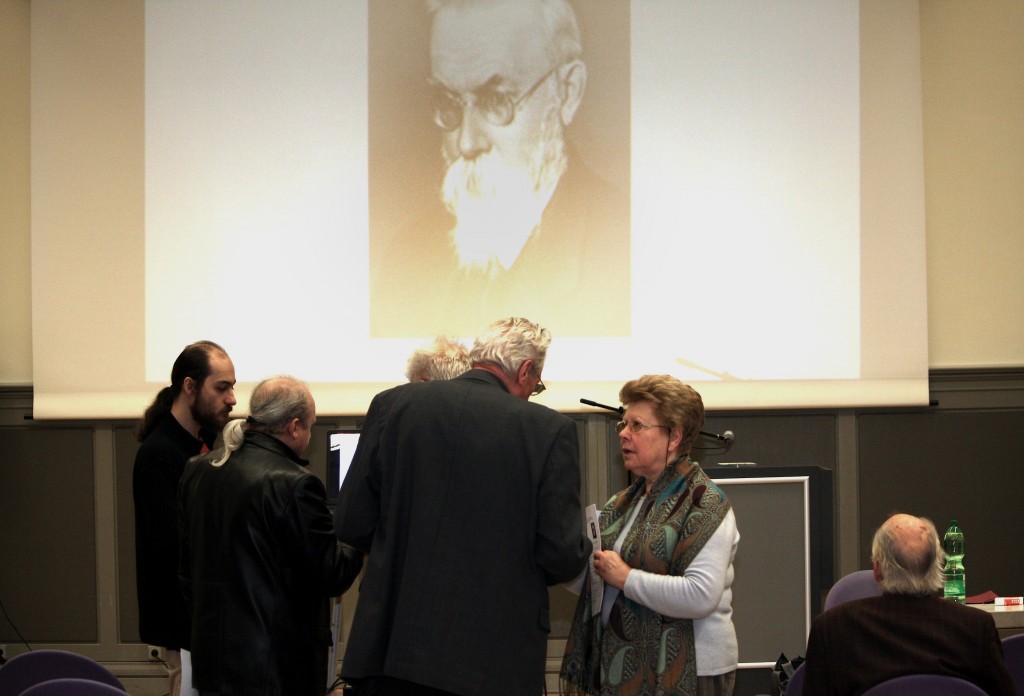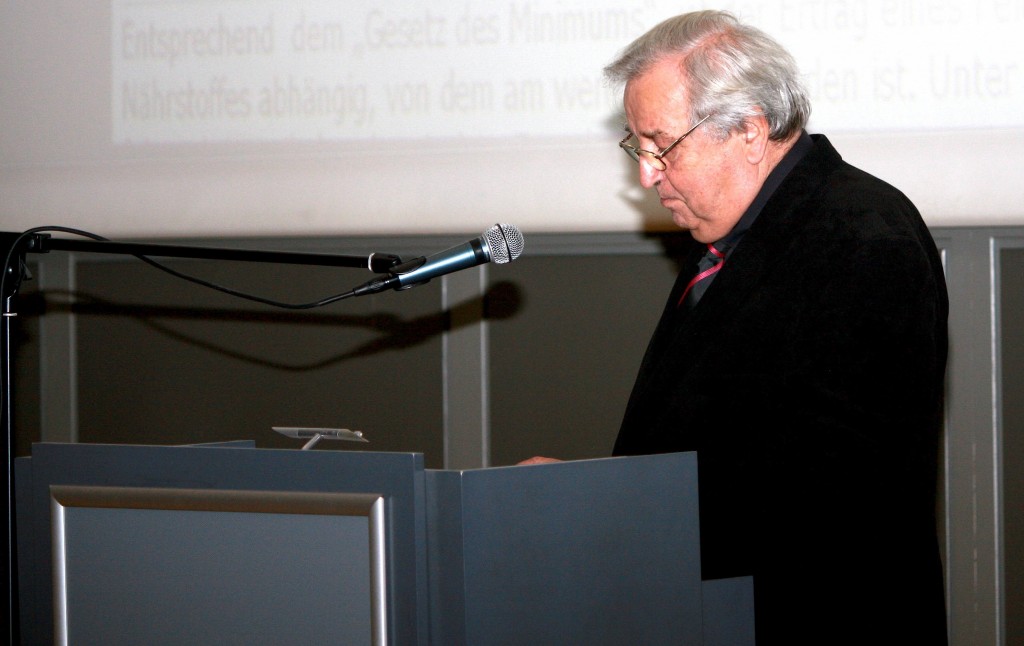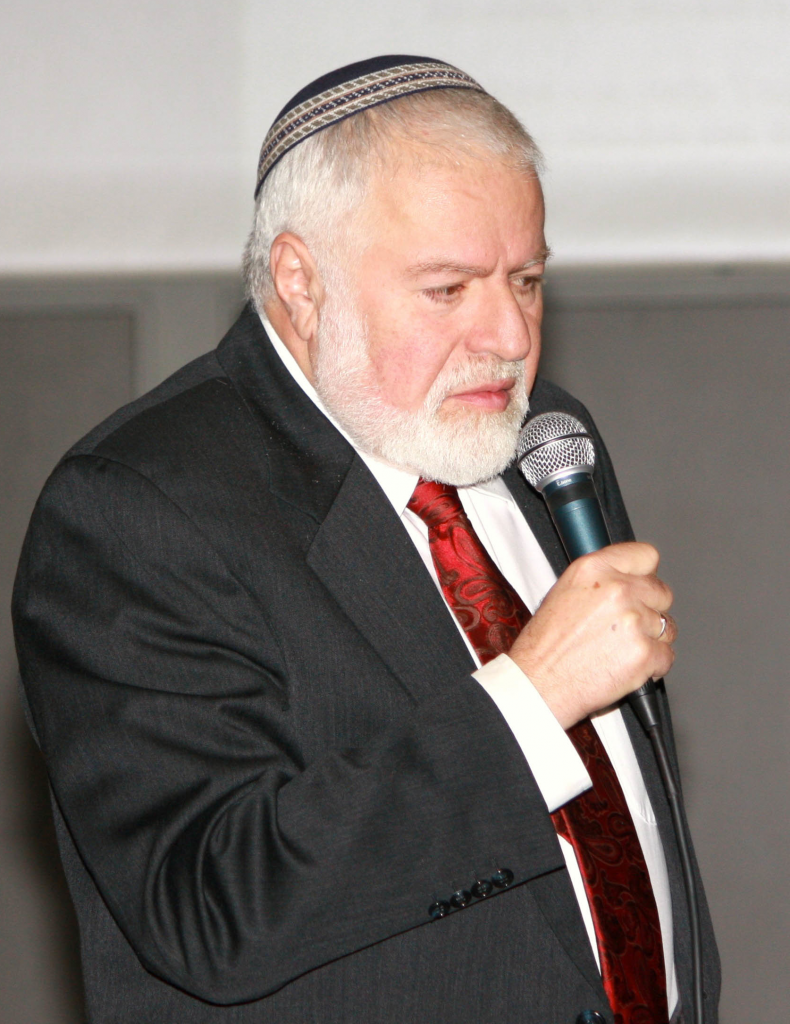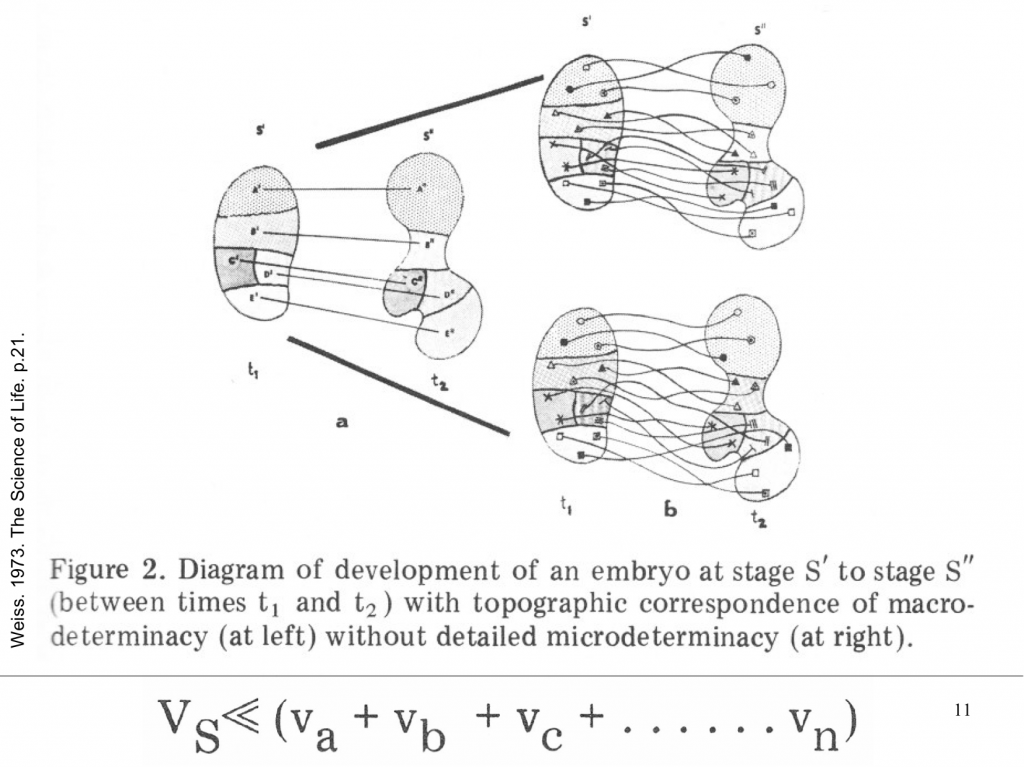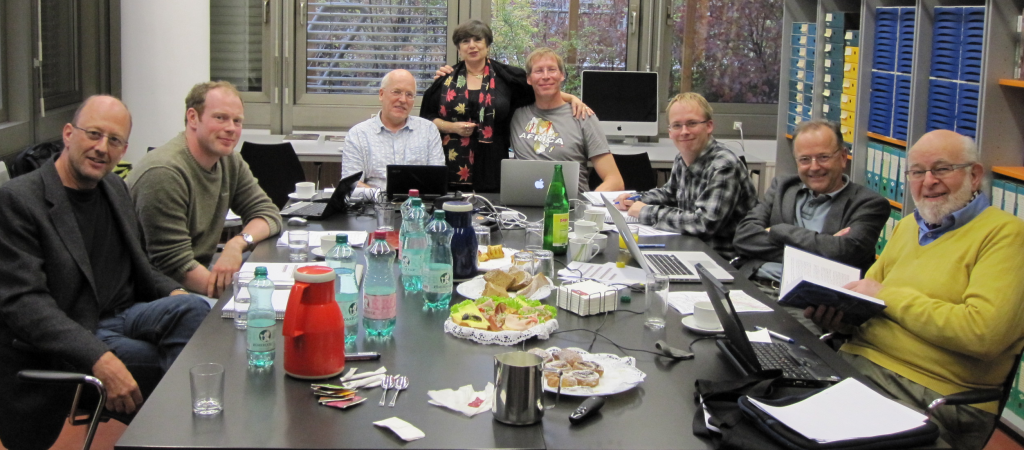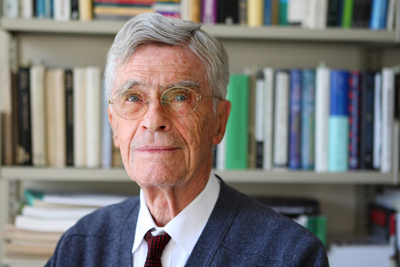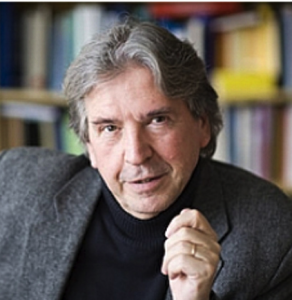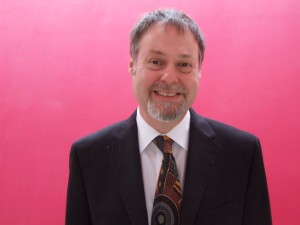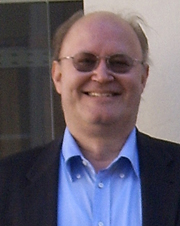EMCSR 2012
discussions in the coffee breaks – not the least important ones at the European Meeting on Cybernetics and Systems Research 10-13 april in Vienna. Rainer E. Zimmermann, member of the international programme committee, symposium co-chair, phd day reviewer, presenter of two papers, laudatory speaker for Edgar Morin, and attendee of the International Federation for Systems Research reflective session (photo: emcsr)
one step further in the systems movement. by the term “systems movement” i do not want to exclude any approach that is, actually, related to it. from the outset, it seems cybernetics has been the engineering-oriented twin of systems theory. informatics and computer science were closely interweaved with them. and, not to forget, evolutionary theory and evolutionary thinking, in particular, in austria. nowadays the field of complex adaptive systems is coming of age, while seemingly forgetting about its roots. computer simulations and philosophical deliberations in complexity are obviously different. network analysis is another field whose relationship with systems thinking is unclear. agent-based modeling is another tool – but how does this tool link to systems? life sciences have been discovering their predilection for systems – they call it systems biology. the more the term “system” has been used throughout sciences, the less clear is its meaning.
do we need clarification? yes, we do. all of the mentioned schools, theories, methodologies, are transdisciplinary in nature. thus it needs a consistent picture of how they are related to each other. all of them relate to “systems”. hence “system” as key to the understanding of the bigger picture. and transdisciplinarity is not an end in itself. transdisciplinarity is required, if civilisation attempts to master the crises we entered.
one step further – a very humble one, but not insignificant, and hopefully helpful to, if not decisive for, some of EMCSR’s participants.
i was so happy to be able to welcome two of the first and until today most important system philosophers – Edgar Morin and Ervin László. both of them delivered a keynote speech that addressed the fate of our civilisation. Edgar is going to celebrate his 92nd birthday this summer. when receiving the Ludwig von Bertalanffy Award in Complexity Thinking, and, in addition, the certificate for having become a member of the International Academy for Systems and Cybernetic Sciences (IASCYS), he joked that’s too much honour for him now – that’s rather an honour one receives only posthumously. however, we are glad that he is still alive and with us. another touching moment was when Matjaz Mulej congratulated Ervin after his talk in which Ervin summarised all his efforts for changing the world – so far in vain. Matjaz said he was glad that during his IASCYS presidency he was able to elect an academician such as Ervin.
Edgar Morin responding to questions after his keynote (photo: emcsr)
Ervin László next to the president of the International Academy for Systems and Cybernetic Sciences (IASCYS), Matjaz Mulej, who resigned at EMCSR 2012, next to the current president of the IASCYS, Robert Trappl, 40 years chair of the EMCSR in Vienna (photo: emcsr). it was the second conference i had the honour to invite Ervin after the Foundations of Information Science conference in 1996
thanks to Stefan Blachfellner and his co-workers we had new media presence.
Stefan presents journalists in training (photo: emcsr)
for details see my report on the Bertalanffy Center website.

